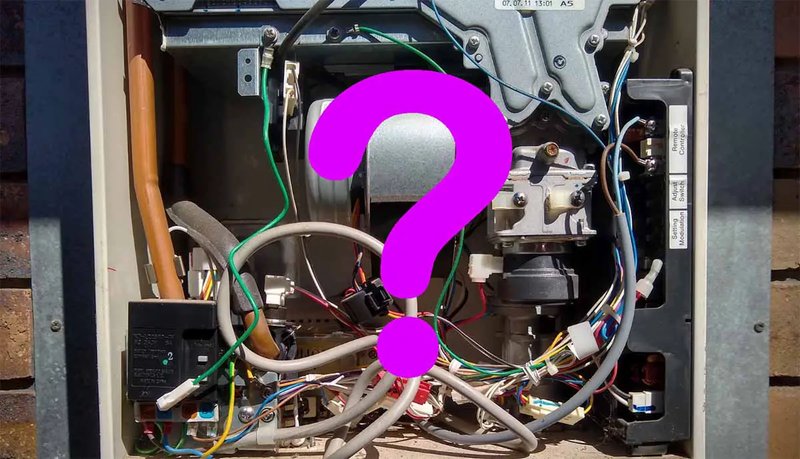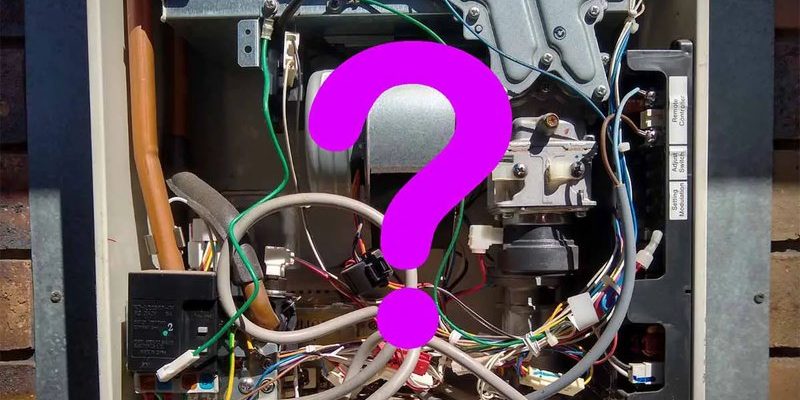
Error Code E2 is a signal from your Bosch water heater that something is amiss with the temperature sensor. Think of the temperature sensor as a thermostat in your home. It keeps track of the water temperature, ensuring it’s just right — not too hot and not too cold. When something’s wrong with this sensor, your water heater can’t accurately measure the water’s temperature, leading to inconsistent performance. Understanding this error will help you decide when it’s time to take action and call in the professionals.
Understanding Bosch Water Heater Error Code E2
When Error Code E2 appears, it means there’s an issue with the temperature sensor on your Bosch water heater. Imagine driving a car where the speedometer stops working. You might still be moving, but you can’t tell how fast. Similarly, the heater might be trying to function, but without a correct temperature reading, it’s a gamble whether the water is hot enough. This sensor failure can stem from a couple of reasons, such as a faulty sensor, loose connections, or even a short circuit.
In most cases, the problem could be as simple as a connection that has been jostled loose over time. If you’ve ever noticed how a cable might come loose from your TV or computer, it’s similar here. These simple issues could be easily overlooked but lead to annoying problems, like leaving you shivering in the shower. However, you shouldn’t rule out the possibility of a more complex issue, such as the sensor itself being damaged or failing internally.
But before you rush to conclusions, try resetting your water heater. Just like restarting a computer can solve many tech glitches, a reset can sometimes clear error codes. If this doesn’t resolve the error, it might be time to weigh whether a DIY fix or professional help is needed.
DIY Troubleshooting Before Calling a Technician
Here’s the deal: Sometimes, all it takes is a little troubleshooting to resolve Error Code E2 without needing to call in a pro. First, make sure to power off the heater and safely inspect visible connections. Remember, safety is key — think of it like checking a lamp: turn it off before examining its plug.
Once you’ve unplugged or turned off the heater, gently check and secure any loose wiring connections. In some cases, you might find that wires have simply become dislodged, much like a phone charger that’s not plugged in properly. If you’re comfortable with this, reconnect any loose wires snugly and power on the heater again to see if the error clears.
However, if the error persists, or if the wiring seems fine, you might consider testing the sensor itself if you have the right tools and know-how. This step is for the more adventurous, as it involves using a multimeter to check sensor resistance. Just like measuring the air pressure in a tire, it’s about ensuring the sensor is doing its job.
When It’s Time to Call a Professional
You might be wondering, “When should I throw in the towel and call a technician?” Well, if your troubleshooting efforts don’t fix the issue, or if you’re not comfortable inspecting the heater on your own, it’s best to call in a professional. A skilled technician can efficiently diagnose whether the sensor needs to be replaced or if something else is at play.
Technicians have the expertise and tools to safely address the issue. Plus, attempting a complex repair without proper knowledge could void any warranties or even lead to further damage. It’s a bit like trying to fix a leaky pipe without knowing plumbing basics — sometimes it’s just smarter to leave it to the pros.
Moreover, if the error code frequently reappears, even after professional repair, it may indicate a deeper issue within the system. Consistent errors could suggest your water heater is nearing the end of its lifespan, and the technician might recommend considering a replacement if repairs become increasingly frequent and costly.
Preventative Measures for Future Peace of Mind
Now that you know what to do when faced with Error Code E2, let’s focus on prevention so you can avoid such issues in the future. Regular maintenance is key. Think of it as routine check-ups with your doctor. Scheduling periodic inspections by a professional can keep your heater in top shape and catch potential problems before they escalate.
Keeping the area around your heater clean and ensuring proper ventilation are simple measures that go a long way. Much like ensuring your car runs smoothly with regular oil changes, these small steps can prevent buildup or overheating, which might affect the sensor and other components.
And while it may be tempting to crank up the temperature, keeping your water heater set to a moderate level can reduce wear and tear on the sensor. It’s akin to not revving your engine to the max every time you drive — it helps prolong the life of the parts involved.
In conclusion, Error Code E2 on a Bosch water heater can be a minor hiccup or a sign of a more significant issue. By understanding what it means and knowing when to call a professional, you can ensure that your heater serves you reliably for years to come. Remember, if in doubt, don’t hesitate to call in the experts.
